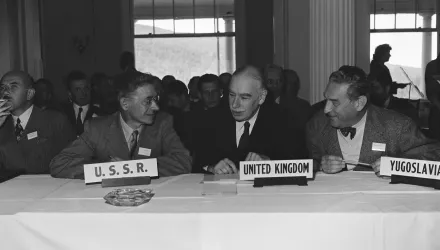International Security is America's leading peer-reviewed journal of security affairs.
Abstract
Robert Ross of Boston College analyzes the consequences of the Clinton administration's May 1995 decision to approve a visa for Taiwan's leader, Lee Teng-hui, to visit the United States. That decision, according to Ross, represented the latest in a series of actions taken by U.S. officials that seemed to signal a shift in U.S. policy toward Taiwan. Ross traces the events culminating in the March 1996 Taiwan Strait confrontation, in which the United States demonstrated its commitment to defend Taiwan against mainland China by deploying two carrier battle groups to the strait. That incident, Ross argues, demonstrates how easy it is for the United States to be drawn into a debate over an issue of peripheral U.S. concern: Taiwan's legal status. Ross ends on a cautionary note: "Washington cannot permit American ideological support for Taiwan's democracy…to undermine the politics of war and peace between the United States and China."
Ross, Robert. “The 1995-96 Taiwan Strait Confrontation: Coercion, Credibility, and the Use of Force.” Fall 2000
The full text of this publication is available in the link below.



